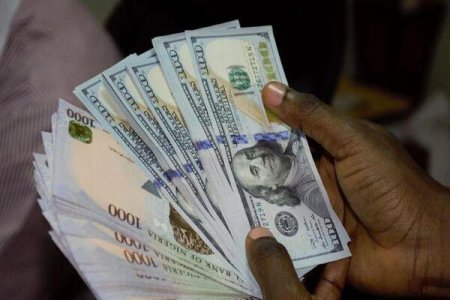
Image by Gerd Altmann from Pixabay
In a recent eye-opening interview with the Foundation for Investigative Journalism (FIJ), crypto market analyst Mikael Bernard delved into the complexities surrounding the Nigerian Naira's recent surge in value. This discussion unearthed critical insights about the underlying market dynamics and economic policies affecting Nigeria's currency. The revelations from this interview shed light on the immediate situation and offer a broader perspective on the challenges facing Nigeria's economy. Below are the top 10 takeaways from this enlightening conversation, providing a distilled understanding of the intricate interplay between currency valuation, market manipulation, and economic policy.
- Misleading Surge in Naira's Value: The recent rise in the Naira's value was not due to economic stability but resulted from market manipulation.
- Order Book Manipulation: The unusual appreciation of the Naira resulted from order book manipulation in the spot market, exploiting the market's low liquidity.
- Artificial Currency Strength: The manipulation involved posting small amounts in the order book, creating an illusion of a stronger Naira, which did not reflect the actual economic value.
- Temporary Appreciation: This artificial appreciation was short-lived and was quickly capitalized on by savvy traders and informal Bureau De Change operators.
- Misinterpretation of Currency Value: The incident highlights a common misinterpretation of currency value in the spot market, which often does not represent actual economic transactions.
- Critique of Central Bank Policies: Bernard criticizes the Central Bank of Nigeria's (CBN) policies under Godwin Emefiele, particularly the attempts to defend the Naira through market interventions.
- Economic Health Reflection: The Naira's value reflects Nigeria's economic health, which is currently suffering due to a lack of production and export.
- The futility of Market Interventions: The CBN's approach to defending the Naira is seen as futile and economically damaging, as it needs to address the underlying economic issues.
- Impact on Investor Confidence: Such market manipulations erode trust in financial platforms and deter real investors, worsening Nigeria's economic situation.
- Need for Fundamental Reforms: The interview underscores Nigeria's necessity for fundamental economic reforms rather than relying on superficial market interventions.
We recommend reading the entire interview on the Foundation for Investigative Journalism website to explore these issues further. The conversation provides valuable insights and perspectives essential for anyone interested in understanding the economic dynamics of Nigeria.




